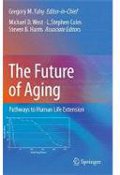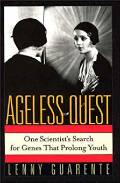Andrea Bodnar Finds a Lack of Age-Associated Telomere Shortening in Long and Short Lived Sea Urchins
 Who:Andrea Bodnar, Nicola Francis, Tiffany Gregg, Richard Owen, Thomas Ebert
Who:Andrea Bodnar, Nicola Francis, Tiffany Gregg, Richard Owen, Thomas EbertWhen:July 24, 2006
Institution: Bermuda Institute of Ocean Sciences
Where: St. Georges, Bermuda
Sea urchins have a long history as a model organism in developmental biology. Interestingly life-span varies between species. L. variegatus lives for only 3-4 years while S. franciscanus can live for more than 100. Bodnar et al. analyzed a wide array of tissues at various stages of development to measure for telomerase activity and found no difference in telomerase levels. The result suggests that telomere shortening might not be associated with increasing age.
Bodnar also found that very old sea urchins with telomerase activity did not experience neoplastic transformation (cancer) suggesting that a decline in telomerase does not serve as a cancer suppressor.
Bodnar will continue to search for genetic factors contributing to the difference of lifespan between the two species of sea urchins applying results to an understanding of aging and resistance to age-related diseases.
References
- N. Francis, T. Gregg, R. Owen, T. Ebert, A. Bodnar. Lack of age-associated telomere shortening in long- and short-lived species of sea urchins. FEBS Letters, Volume 580, Issue 19, Pages 4713-4717
Links
- Andrea Bodnar, Michel Ouellette, et al. Find An Extension of Human Cell Life-Span with the Introduction of Telomerase
- Bodnar Lab at The Bermuda Institute of Ocean Sciences




